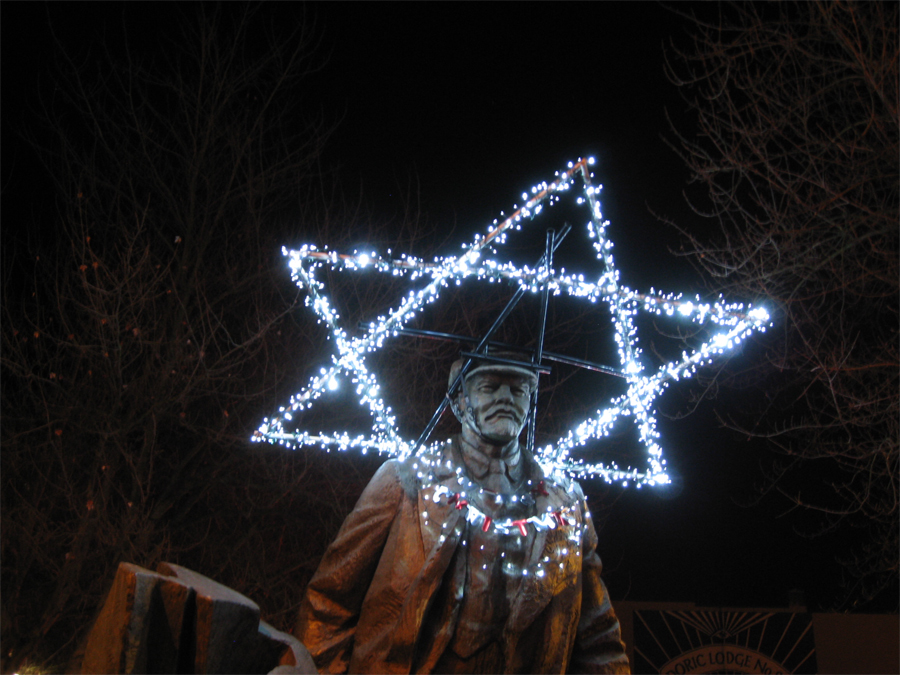
Christmas spirit is a matter of opinion. The “right” way to celebrate, or even acknowledge the curious amalgam of traditions and customs which surround the last week of the year has become a popular political football in the last thirty years or so. And each year the game gets louder, thanks to the huffing and puffing of stuffed shirts claiming that the Christmas celebration is in need of as much “defense” as the custom of marriage.
Such a clamor. Reindeer on the roof don’t even compare.
Fortunately, in Seattle there exists a long and proud tradition of reinventing tradition. Thus, while other communities across the globe light trees and candles to honor whatever is dear to their hearts, in Seattle, along with the trees and the sugarplums, the lights go up on Lenin, our beloved, if misunderstood, hero.
In Fremont, where this statue of Lenin is a relatively new addition to the eclectic and stubbornly independent iconography of Seattle’s most free-thinking neighborhood, the lighting of the Lenin statue signifies the spirit of tolerance and charity which, if I remember my Bible school lessons correctly, are synonymous with Christianity, as well as being common themes in most of the world’s popular religions.
Lenin himself, of course, was not a religious man. His cause was justice for the common man, the workers of the world, and the enemy, as he saw it, was not some imaginary devil, but the very real tyrants who rose to power under the capitalist system. As Lenin wrote: …”capitalists strive to sow and foment hatred between workers of different faiths, different nations and different races.”
Not exactly the spirit of Christmas. How ironic that Christmas has come to represent the apex of the consumerism which fuels capitalism.
At Fremont’s annual event children drink cocoa and Santa mingles with the crowd. Carols are sung and goodwill abounds. It’s not a particularly holy event. But, like the Christmas holiday itself, it fosters a few moments of genuine peace and hope.
Neither Lenin nor Marx found much to praise in religion, seeing it primarily as a cruel hoax used by tyrants and political schemers to keep the workers of the world from fighting for themselves in this life. But even those early Socialist leaders recognized the vital role that religion can play for the disenfranchised masses. Marx once called religion “the heart of a heartless world.”
At Christmas time, that heart beats a little louder. Even in Fremont.